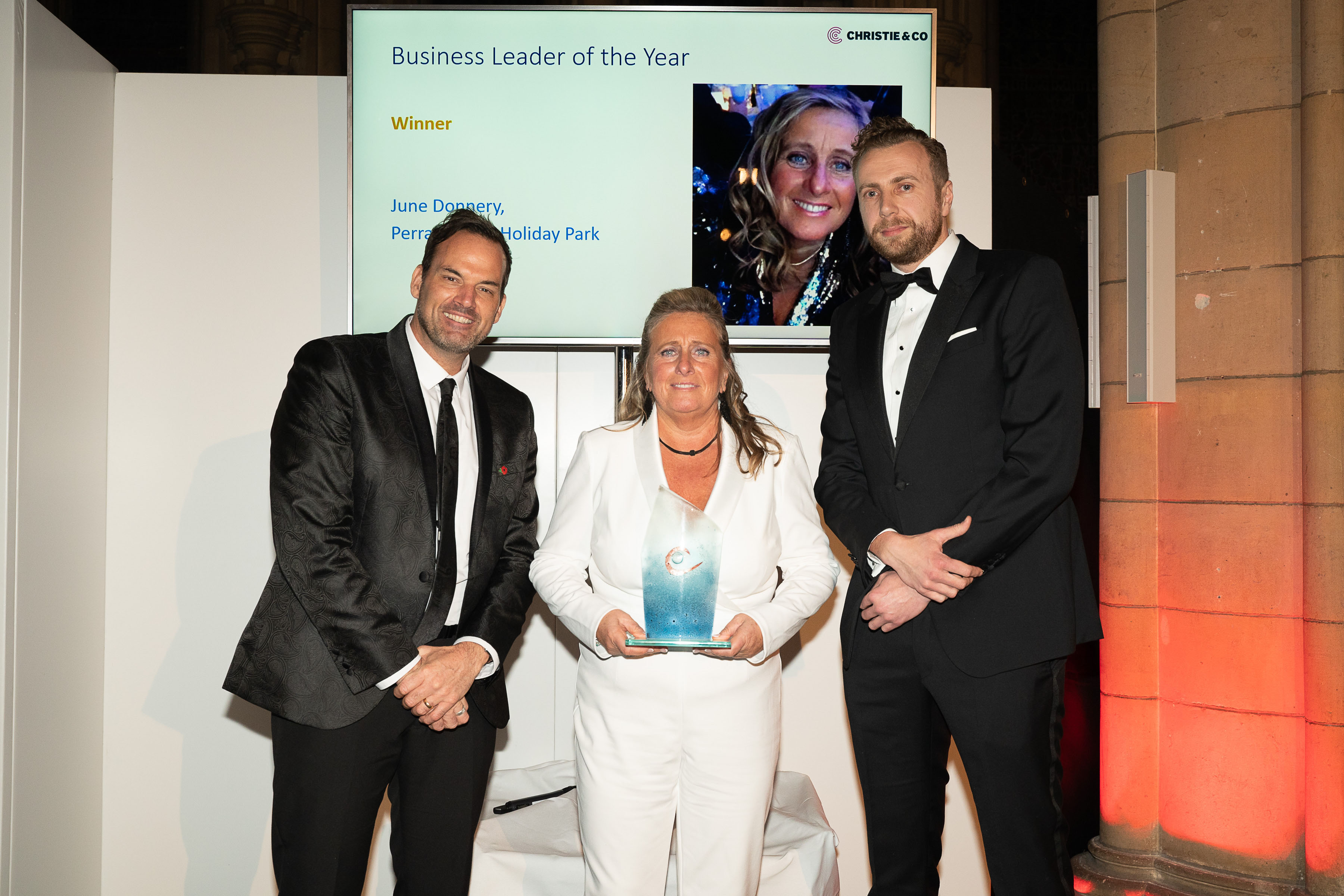Leadership & Strategy
Article
Learn how leadership can influence business strategy in the right way

Running a hospitality business is pretty demanding. For the three leaders we met, success is rooted in a strong sense of leadership and a clear strategy.
We spoke with three hospitality leaders in Cornwall to pick up some tips on how they lead their teams and spearhead business strategy. While their businesses are all different, ranging from a fish and chip shop to a historic wedding venue, the owners and managers shared similar leadership values and approaches to implementing change. For them, successful leadership is all about open communication, empowering your team to become leaders themselves, and driving forward continuous improvements.
Meet our panel of leaders:
Pete Fraser- Pete is the owner of the national award-winning fish and chip restaurants Harbour Lights in Falmouth and Frasers in Penzance.
Sarah Turpitt- Sarah is the general manager of Polhawn Fort, a popular international wedding destination.
June Donnery- June is the general manager at two award-winning holiday parks, Haven Perran Sands and Riviere Sands.
Be the Business: What have you found to be an effective way of introducing outside learning in to your business?
PF: The business was a bit haphazard for the first 18 years. We needed a management system that better filtered and integrated my ideas. I read the book “Traction” which gave me the idea to introduce what the book refers to as an “integrator”. Today I have a senior team member who listens to the new ideas I have and filters out what will work and what won’t. She actions around 20 per cent of my ideas that fit within the team’s workload and then bins the rest.
ST: I have a long and detailed plan for where I want the business to go. But not everyone wants to digest that all at once, especially those who are customer facing. We have first morning discussions to go through real time customer feedback as well as a yearly review process. We then work together to find a solution. I find that team members have more buy in and are more likely to implement changes with this approach.
Be the Business: How have each of you grown and evolved as a leader and what have the key learnings been in that process?

JD: I’ve been a leader for many years, from managing a team of 250 people at 24, to today managing a team of 500. The most important thing I’ve learned is to talk to the people at the sharp end of the business. I ask them “how can I change to support you better?”, “What am I doing, or not doing, to enable you to do your best work and grow?”. As leaders we have to learn to listen better. A great deal of my journey has been watching and listening, and as a result I’m a better leader by far than I was 20 or even ten years ago.
PF: Prior to fish and chips I was in the Royal Navy, where the style of leadership was really “yes sir, no sir”. There was quite a big transition for me going into the restaurant business. To my confusion, some people didn’t do what I asked them to do! Over time I’ve learned that it’s important to promote open communication as much as possible. Most recently, I had an honest conversation where I realised that a quarter of my staff, either now or in the past, were going through some mental health issues. I’ve never suffered from depression myself, so it was a real revelation for me. If I want to be a decent boss and leader, I have to be more considerate and try to understand what people’s challenges are.
ST: My focus has increasingly shifted towards helping my team to recognise that they are experts in their own areas. I’ve made space for them to grow in their leadership roles and build up self-worth. I also invest in their training and encourage them to take day trips to learn from other hospitality businesses. My lads on the maintenance team have grown up and attended school locally, and some have worked for Polhawn Fort for nearly 20 years. So, sending them off to learn from others was initially alien, but it has been amazing to watch them grow as leaders. They are enjoying their jobs a lot more now because they are more empowered and can dictate what happens in their day.
Be the Business: When thinking about developing and implementing your business strategy, how do you balance short-term goals with the long-term goals that perhaps require more planning and resources?

PF: When I first started out, I did a ten-year vision which proved to be unmanageable. The way we run it now is through a one- and three-year vision broken down by quarters. In each quarter everyone has what we call “rocks” – their own individual goals to achieve. Because we’re so busy in summer, this approach helps us to avoid getting bogged down with operational stuff so we can focus on keeping plates spinning.
JD: Each year at the end of summer we do a review and goal setting for the next year. We do this across the business as well as within each team. Each quarter we then review performance. As general manager I also have five-year plans for capital developments and a long-term strategy for retention and succession of our employees.
Be the Business: During your careers, when have you learned to be a little more courageous?
JD: I recently bid for £2.4m from Haven, our parent chain, to build a new restaurant. I wanted to challenge the status quo with an open plan kitchen and a menu that features Cornish dishes using local producers. We now sit in the most successful restaurant in Haven because of this gamble. You become more courageous by challenging the status quo – but make sure that you can back it up with great people with good heart.
Be the Business: With a possible future increase in minimum wage, how will that effect your business and how you make strategic decisions?
ST: In the last three years we have raised our employee’s salaries ten per cent each year. We needed to play some catch up quickly. We now pay our team considerably more than living wage and have been clear with them where we are at financially and what we want to achieve. I’m hopeful that we have put enough of a buffer in to see us through any change in a raised minimum wage.
PF: I think that if we all look inwards in our business there are lots of gains in productivity that make it possible to pay someone 20 percent more. I know within my own business that if we did concentrate on productivity, we wouldn’t have to put our prices up and pass it on to customers. I believe this is something we, and most businesses, can pay for through our own internal productivity gains.
This panel interview was held during a Be the Business Hospitality Masterclass in Cornwall. Formed in 2018, the programme was designed to make Cornwall home to some of the best hospitality businesses in the country. Learn more about the programme here.